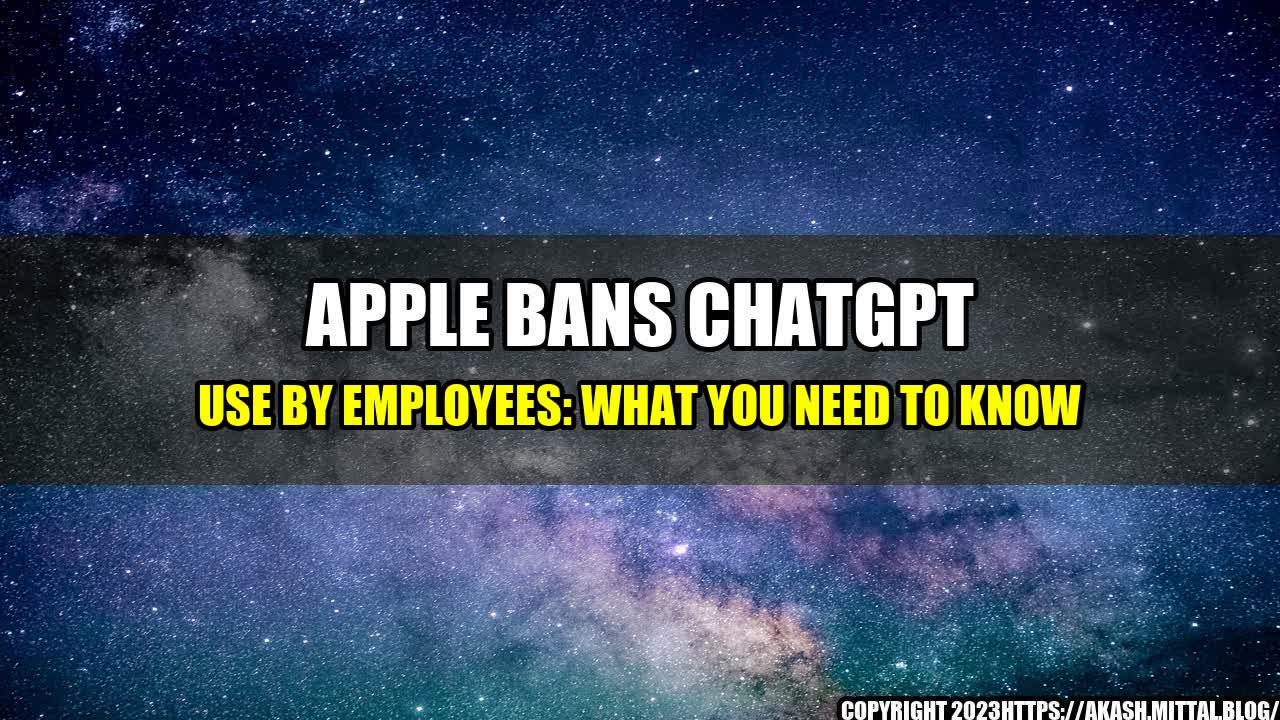Have you ever heard of ChatGPT? It's an artificial intelligence language model that can generate human-like responses to text prompts. Sounds pretty cool, right? Well, apparently, Apple doesn't think so.
According to recent reports, the tech giant has banned ChatGPT use by its employees due to security concerns. The ban applies to both company-issued and personal devices and prohibits the use of any non-corporate messaging apps or software, including ChatGPT.
This news has sparked a lot of controversy in the tech community, with some arguing that Apple is being too strict and that ChatGPT can actually improve communication and productivity. Others, however, agree with Apple's decision and believe that employee security should be a top priority.
So, what should businesses take away from this? Let's take a closer look at why Apple banned ChatGPT and how it can impact your company:
Why Did Apple Ban ChatGPT Use by Employees?
As stated earlier, Apple banned ChatGPT use due to security concerns. Essentially, the company wants to ensure that all employee communication remains within its own secure systems and that no sensitive information is leaked or compromised.
ChatGPT, while impressive in its ability to generate human-like responses, is ultimately an external messaging tool that could potentially expose company data to outside threats. Additionally, the use of non-corporate messaging apps or software could prevent Apple from being able to audit and monitor employee communications.
While ChatGPT has its benefits, it's important to remember that security should always be a top priority for businesses. Any tool or software that could potentially compromise sensitive information should be carefully evaluated and monitored.
What Does This Mean for Businesses?
Apple's ban on ChatGPT use by employees can serve as a valuable lesson for businesses of all sizes. Here are a few key takeaways:
- Security should be a top priority: Your company's sensitive information should be protected at all costs. This means carefully evaluating any external tools or software, monitoring employee communication, and implementing security protocols to minimize risks.
- Communication tools should be carefully selected: While ChatGPT may seem like a useful tool, it's important to carefully evaluate any external messaging apps or software before allowing their use within your company. This includes conducting security audits, checking privacy policies, and ensuring that you have control over your data.
- Employee education is key: It's not enough to simply ban certain tools or software. Your employees should be educated on security best practices and understand the risks associated with external communication tools. This can help minimize the chances of data breaches and maintain a secure working environment.
Conclusion
Apple's decision to ban ChatGPT use by employees is certainly controversial, but it serves as an important reminder that security should always be a top priority for businesses. When it comes to external communication tools and software, it's important to carefully evaluate and monitor their use to minimize risks and protect sensitive data.
By prioritizing security, carefully selecting communication tools, and educating employees on best practices, businesses can improve productivity and maintain a secure working environment.

Curated by Team Akash.Mittal.Blog
Share on Twitter Share on LinkedIn